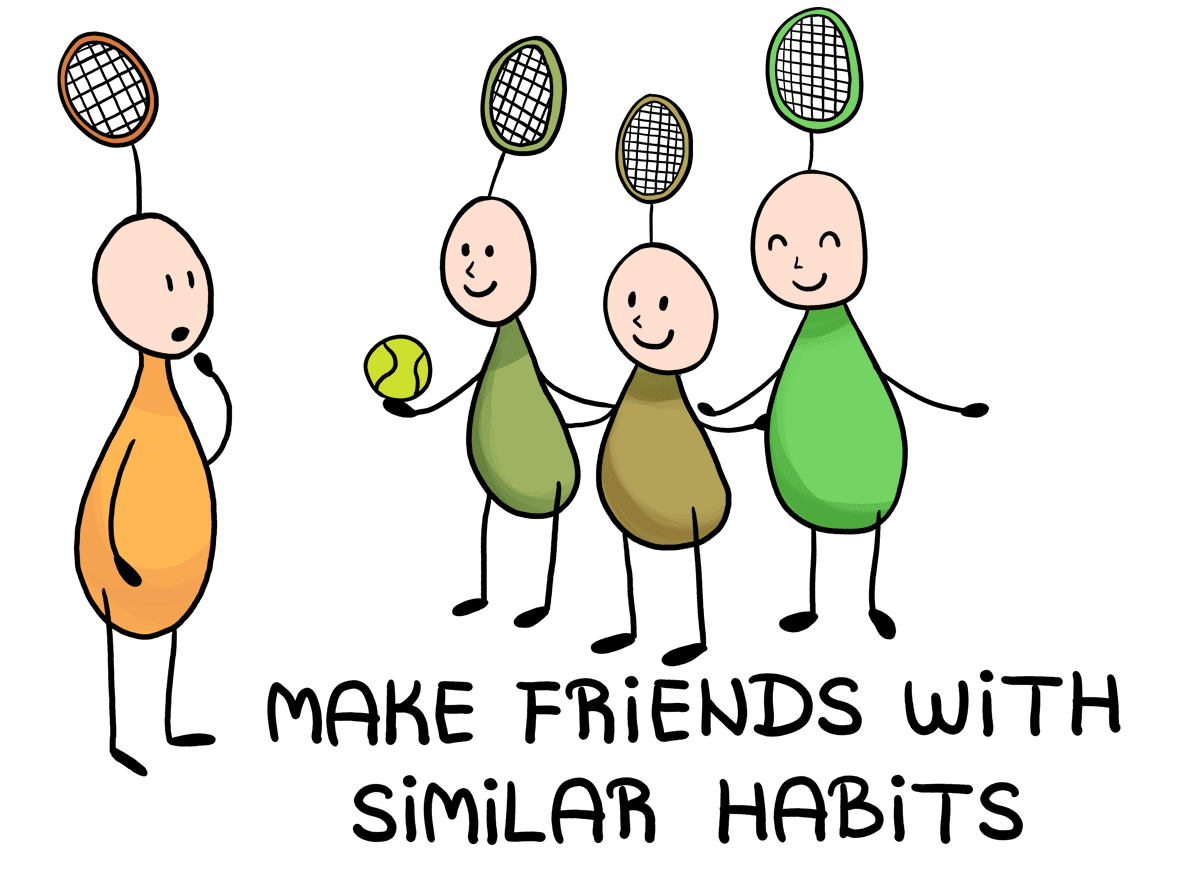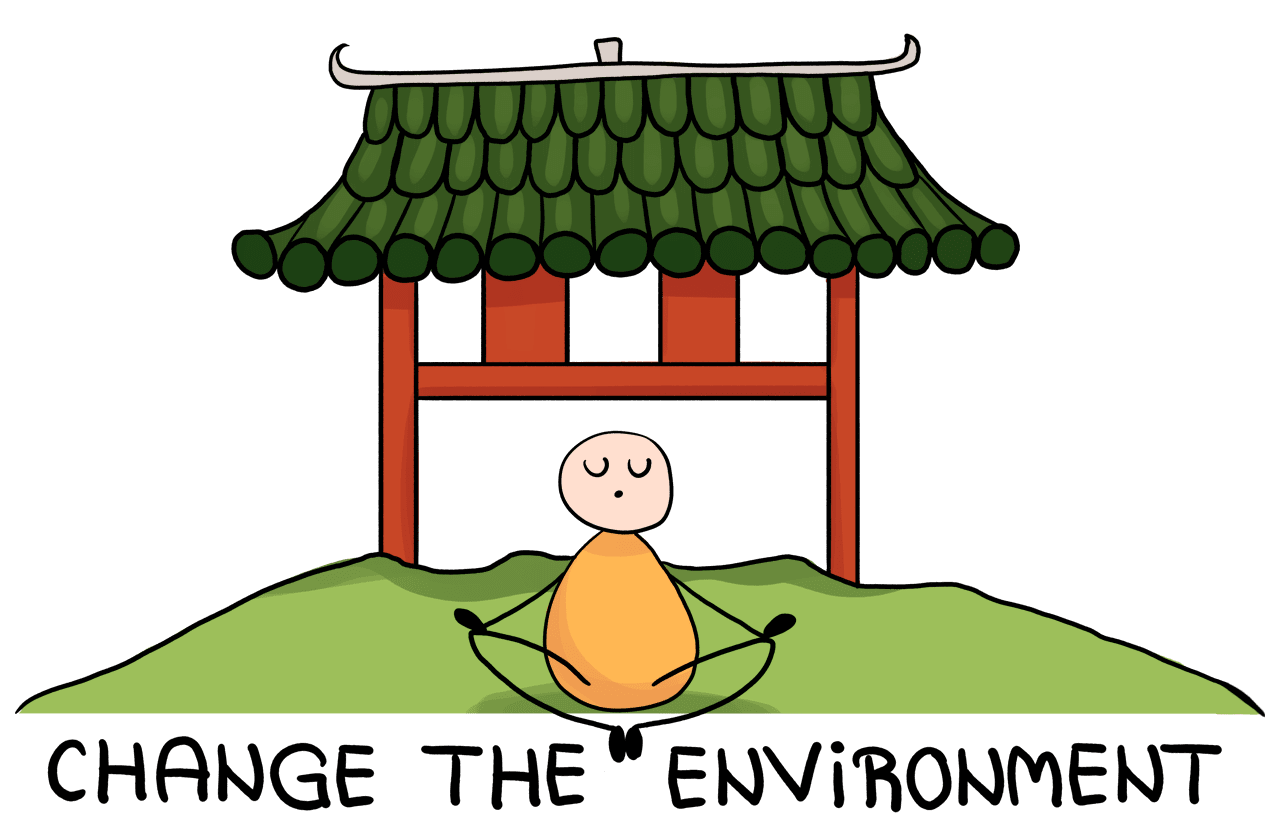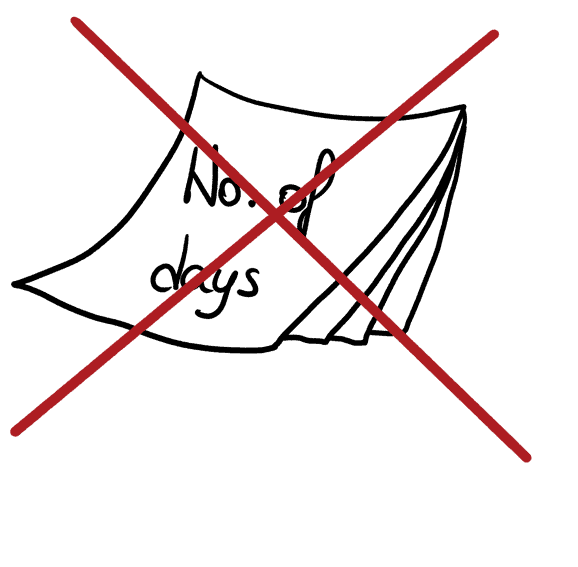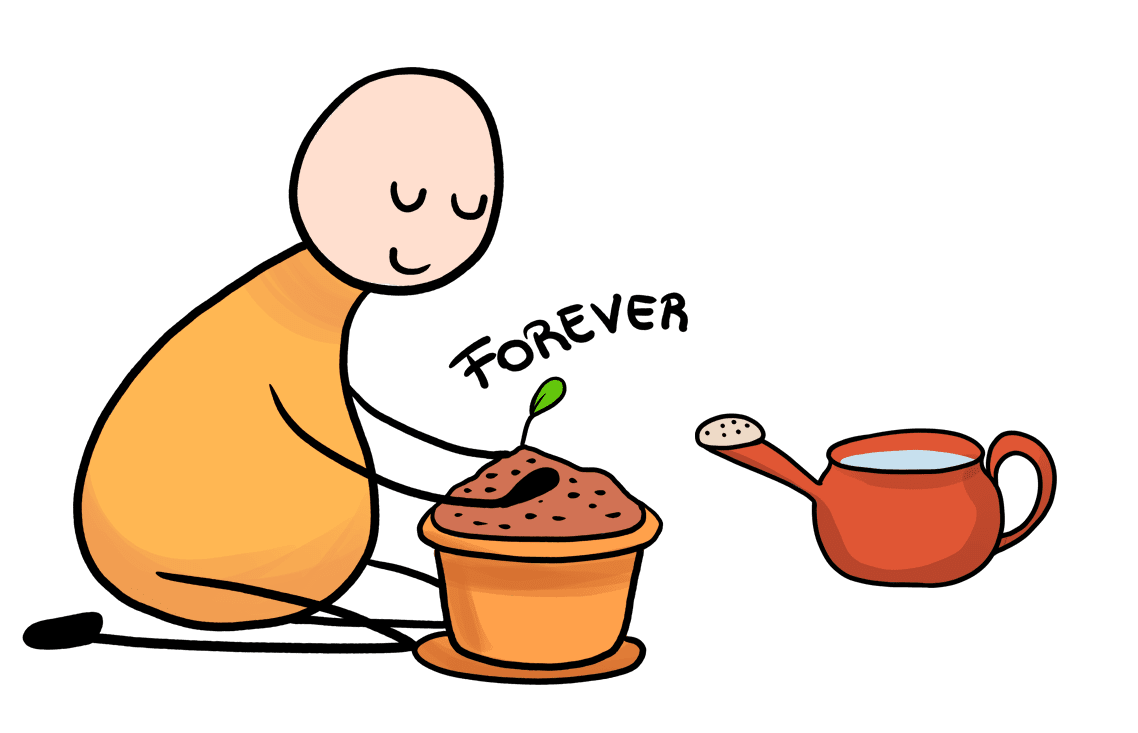We all have bad habits, and we know how these bad habits affect our daily lives. Don't worry. If you want to remove a bad habit from your routine, you can - by replacing it with a good habit!
How to Replace a Bad Habit With a Good Habit
Your brain understands that if it sees a trigger and it does the corresponding habit, it will get the reward. Over time that's all it wants: the reward. Sometimes the brain even skips the trigger and just goes to the habit for the reward. What we can do is change out the habit - the thing in the middle - to something more effective that still gives us the reward.
So we might have a trigger - something like a break at work when everyone else is going outside to smoke. Instead of smoking, we can get away from them and do something else productive to still get the dopamine reward.
A habit is still there, just changed.
Bad Habits and Psychology
Let me tell you a story about an old man with dementia and a history of alcoholism. He’s in his late 70’s and he can’t do much. He can barely eat or stand on his own, yet every morning he shaves his beard - a habit so deeply rooted during his years in the military, that he could not give it up, no matter how old or sick he was.
He can’t do much and his memory is shot, but his brain still always remembers one thing: “if it’s morning, I have to go grab my electric razor and shave my beard.”
He still has that habit because habits form in the basal ganglia, which is one of the oldest structures in the brain. It's near the center of the skull, just where your spinal cord is entering your brain. When that man was old and his brain was damaged from disease and alcohol, that habit stayed there because that part of his brain remained intact.
A lot of people start to lose their memory when they incur brain damage in their prefrontal cortex and other sides. But the part where habits develop lies deep in the brain and is very hard to damage. That’s why habits are so powerful; you need to understand what effect they can have in your life.
So how do we make sure we have good habits in this protected area of our brain? Well, we can replace bad habits we don’t want with good habits we do want.
Look at a habit you have but don’t like and think of something similar but more positive that you’d like to be doing instead. For example, a lot of people that smoke are triggered to do that habit at a certain time of the day. That habit can be swapped out with something similar but more desirable than smoking… like eating Twizzlers, for example.
Smoking has a lot of psychological stuff fixated on the mouth since it involves breathing in and out and it has a lot to do with fidgeting things in your hand. People like to fidget the cigarette around. Heavy drinking also involves a lot of psychological stuff, with swirling the drink around and consuming a substance.
It's good to find something that is similar to your habit but is more productive.
So instead of smoking, you can eat Twizzlers. Some people become gum chewers - and it’s much healthier to chew gum 24 hours a day than to smoke three hours a day.
You also want to find something that still provides some kind of reward. This is where creativity comes in. You might have to think a little bit about this, but that's really what's going to lay the foundation for you to become a super successful person in the future.

By thinking about this now so that it can become a habit, it can become concrete in the future, and then you won't have to think about it. Instead of mindlessly going out for a smoke, you will mindlessly chew some gum, which is a lot better!
Discover What Bad Habits You Have
Another thing about habits is that a lot of times they're also distracting, which means they keep you mindless. So you might not even know that you have a habit, which is why I suggest going out and talking with some of your friends and saying, "Hey listen, be honest with me. I'm trying to become a better person. If I have any habits that have ever offended you, that have affected the quality of our relationship, or even if you think that I should change, tell me now. I need to know." And you need to find someone who can be honest with you. I have friends who wouldn't bring stuff up that they probably should. This will also help tie the relationship.
So how do we change the bad habits into something else, something better?
Understand Your Triggers
You have the trigger, which might be going outside or it might be a bad feeling like stress or anxiety. It might be something else - fill in the blanks with your own triggers for bad habits.
Whenever a trigger happens, you need to be conscious and change the action from smoking or drinking to something else: some other enjoyable and accessible activity for you at that moment.
It might be taking some deep breaths, drinking a glass of water, stretching, doing 10 squats, chewing some gum or cleaning your desk.
Let’s say you spend too much time checking your social media accounts and that's a habit that you want to get rid of. Whenever you feel the urge to get on those accounts, think about what the trigger of your situation is - maybe you're just around friends and they're not talking about something really interesting.
Write that down as the trigger. That's the trigger that makes you want to get on Facebook or Instagram or Twitter or whatever site that you want to check.
The habit for that trigger is getting on those websites, and then the reward is the dopamine you get from seeing how many likes you have, reading any new comments you received, and getting information on what other people in the world are doing.
Change the Response to Triggers
If you know that the trigger is an uninteresting conversation, instead of mindlessly checking your phone, you can instead try and spice up the conversation yourself or change the subject. Remember, you got out with friends because you cherish your relationship with them, so stick to this. You’ll have plenty of time to check your phone later.
If you feel like something is triggering a bad habit of yours, it can also help to replace that habit with something that jumps up your adrenaline (depending on the case and situation), like going for a run, out with the bike, hiking, swimming, or going and talking to that cute girl that gets your heart beating 160 beats a minute.
Just something that gets your heart racing. It will distract you from your bad habit triggers.
Here are three little short tips on how you can change bad habits into good habits
1. Surround yourself with like-minded people who have similar habits.
For example, one of the reasons a lot of people smoke is simply because a lot of their friends smoke and it's peer pressure, so you become the sum of the five people that you spend most of your time around.
If you're constantly around people that are smoking, that habit is going to get instilled into you. If you're around people who don't smoke or drink but do read every day or like to go skydiving or do something that you want to have instilled into your own life, that's who you need to start hanging around.
If you want to get rid of bad habits, start hanging around with people who would almost look down upon you for that habit and be like, "Hey you need to change that if you want to hang around with us." That should motivate you.

2. Remove triggers and anything that you think will lead to and eventual bad habit.
You need to find those, understand what causes them, and just get rid of them.

3. Change your environment.
Some people require a mental shift to open their mind to change their habits. Changing your environment is a good way to do that.
Have you ever been on a vacation and you just get a wild idea? Sometimes you get these wild ideas simply because you're outside of your usual environment, so your brain is going, "look at all this new data, look at all this new information, look at ... What can we do with that?"
Your brain will come up with new ways to overcome problems and it will find new solutions, so just getting into a new environment with new people and new experiences will help you break out of a bad habit more quickly.

How long does it take to create a habit?
Many people say it takes 21 days to create a habit. Most of the reason they say that is because your motivation goes away around those days, so you remain with just the discipline and a formed habit to do it anyway.
The people on January 1st, who make resolutions to do things like going to the gym more, say that you have to go 21 days or 67 days to create a habit - because usually, it's even less than that.
What they want you to do is just go and do it until it becomes discipline.
They say that because they want you to understand that you're going to have to go even longer than what is motivating so that your discipline is concrete.

Here’s one little trick that helps you create a new habit instantly or change a bad habit into a good one: open your mind and understand that the habit is changing today - it’s changing right now.
If you think... "I got to do this 21 days so the habit will change,” then it’s going to take 21 days.
If you honestly believe that the habit will change today, then it's going to change today. Your mind is your helping hand in change. If you say the change is happening today then you can and will start developing it instantly.
Of course, it’s good to take repetition. You need to do something over and over and over and over again. For some, it might take 21 days of posting daily videos on your YouTube channel before your channel grows exponentially. For others, it might take 67 days.
You need to persevere until you get the discipline. After that, the habit is formed and the task just gets easier and easier.

What worked for me when I started my YouTube channel was the thought, "You know what? Right now, right this second I'm going to work and persevere and keep going until this channel is successful."
It wasn't a habit. It wasn't like, "I'm going to do this habit now and then tomorrow I'm going to do the same habit, and then the day after that I'm going to do the same habit, and I’m going to keep going for 21 days hoping that it will last.”
It wasn't like I was tricking myself into being disciplined. It was right now - “today, I'm going to make a change. I'm going to impact people's lives. I'm going to work and continue making great videos forever.” It's a lifestyle decision.
So be careful not to “program” your mind with the number of days.
When some people go on diets they say, "for 30 days I'm going to go on this diet, lose some weight, and then I’ll return to eating “normally” and maybe I'll gain some back.”
Then they do gain all that weight back because they don’t gain that discipline. Their mind is set on the 30-day timeframe to have different eating habits; at the end of the 30 day period, they just go back to their old habits.
When you say, "I'm going to do it for 67 days”, you might've started a habit, but you're going to eventually lose the discipline.
You have to understand that when you want to create a habit, you have to say, "This habit is going to be there for the rest of my life." Not just for 21 days and not just for 67 days. It's starting now and it's going until I die.
This habit is here to stay.
Every day from now on I'm going to get up and ride my bike six miles.
It's not “until I have great abs,” because then the habit will start to fade away as soon as you get the great abs. And then you won't have great abs anymore.
It's not “until I lose 60 pounds” because then when you lose 60 pounds you won't want to do the habit anymore and you'll just gain that 60 pounds back.
It's every day from now on, thinking, “I’m going to use this habit to make myself better.”
“Every week I'm going to post at least three videos.”
“Every day I'm going to go on a six-mile bike ride.”
“Every day instead of smoking I'm going to eat six Twizzlers.”
“Every day I'm going to find one person to hang around who will make me a better person.”
“Every day I'm going to talk to at least one girl so that my social anxiety is reduced.”
Not “every day I'm going to talk to a girl until my social anxiety is gone” - but “every day until I die I'm going to talk to a girl because I want that continual improvement.” There will be no end goal. There will be goals, but there won't be any end goal because you will continually improve.
It's not 21 days and then suddenly, it's easy. No, it eventually gets easier and easier and easier, and then maybe 60 years down the road you don't even have to think about it. It's just, "Oh, I didn’t do those 50 push-ups today and my muscles are asking for it. Oh, I haven't gone for a bike ride today. I need to go do that. Oh, I haven't done my budget this month. I also need to do that."
Forget the 21-day habit myth.
Forget the 67-day habit myth, too. Start thinking about instant: you are starting a habit today, right now at this moment, and it’s for forever. Make your habits instant and forever.
Don't say you're going to start tomorrow. “Tomorrow” is like a magical day, where all good things happen, but that doesn’t exist. You have today. Don't say you're going to start in a week. Start right now.
Make your habits instant and forever - not until goal. Not until you lose 60 pounds. Not until you get a six-pack. Do it forever.
And you can have goals to motivate you. You can say, “when I get a six pack, then I can eat half a tub of ice cream” or “when I get a six pack, then I'll go on a cruise.”
But make the habits forever because if they're not forever - if you don't intend on keeping those habits forever - then they are not really habits. It's just like a diet. When you reach your goal, the “habit” will go away and then you'll gain 60 pounds again. A habit is forever

